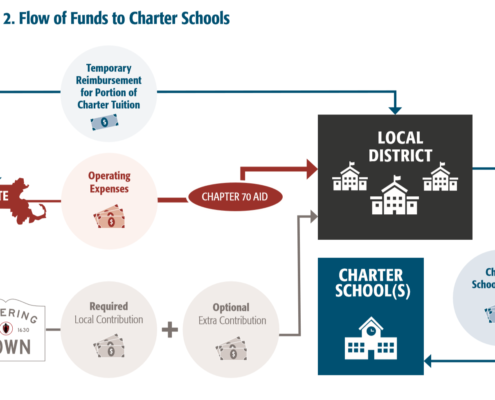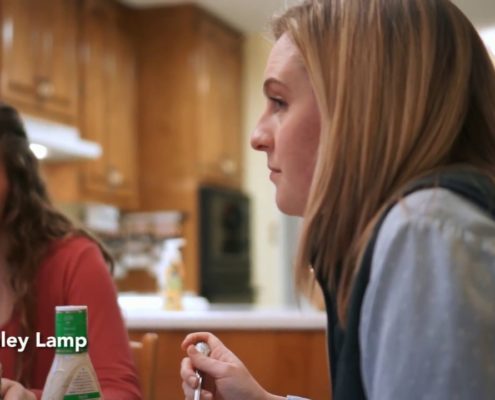Extended Summer Enrichment Programs Most Effective, Cost-Efficient
Part III of Pioneer Institute study series cites three approaches
BOSTON – Massachusetts schools establishing summer enrichment programs to close the achievement gap between lower-income and higher-income students can have a greater impact by eventually expanding the program across multiple summers or for a full year, according to the last of a three-part series by Pioneer Institute on summer learning.
The final paper, Expanding Educational Opportunities: Three Models for Extended Summer Enrichment Programs in Massachusetts, introduces three types of extended summer enrichment models: 12-month programs, multi-year summer-only programs, and multi-year, year-round programs. Many of the top schools interviewed as part of the project found it beneficial to extend their relationship with students into the school year utilizing one of those approaches.
“This series shows summer enrichment programs to be an effective way to combat summer learning loss, which disproportionately impacts disadvantaged students,” said Jim Stergios, executive director of Pioneer Institute. “Private school summer programs also raise academic expectations. Students come out with campus experiences that acclimate them for college life and success.”
As the 2017 summer sessions are about to begin, this study is a comprehensive guide to many types of summer learning programs, with particular attention on those serving underprivileged students.
The new study establishes that while extended programs may require more time and resources than single-summer plans, they need not be more costly. Typically, private schools operating single-summer day programs charge $5,000 or more per student for a five-week session, according to the Pioneer report. But there are schools operating 12-month extended programs, multi-summer programs, and multi-year, year-round programs for less than $2,300 per student that are used as models in the paper.
Part I of the series described what the U.S. Department of Education calls the “devastating” impact of summer learning loss and included the results of a survey of more than 70 Massachusetts private and parochial schools. It found that most offer academically-oriented summer programs, and discussed the most common courses offered and grade levels served.
Part II focused on best practices of schools across the country that offer summer enrichment courses. Program directors discussed the history of their programs, funding, tuition levels, and financial aid, as well as student profiles, facilities, and other aspects of their work.
Part III introduces three types of extended summer learning and encourages private schools to do more for low-income and minority students in their community and beyond. The research is meant to empower administrators, schools, and organizations that wish to launch a summer enrichment program or support mission-driven programs with the information needed to ensure high quality and cost efficiency.
Report authors Lauren Corvese and Ken Ardon included other recommendations in Part III, such as:
- A suggestion that summer programs take advantage of partnerships with organizations that assist with recruitment and funding. These relationships help sustain a program and add a level of legitimacy, stability, and advocacy that schools may be unable to establish on their own.
- A call for programs to try to expand their duration and enrollment. To advance their learning and develop good habits, underserved students need consistent supplementary education over multiple years, rather than a few weeks during one summer.
- Urging schools to continually attempt to magnify their reach by serving additional grade levels or increasing the number of spots available at existing levels. According to the report, adding five students per grade every year over five years would cost between $190,000 and $1.44 million in additional funds, depending on the type of program and number of grades served.
The report notes that while there are a few possible steps forward, including expanding existing partnerships with organizations like Horizons National or fundraising and directing more money toward schools looking to start programs, there is a real opportunity for new non-profits to support Massachusetts schools with summer enrichment programs serving disadvantaged students. While organizations such as Steppingstone Academy, Boston Beyond, Minds Matter, and Horizons National are at work in the commonwealth, there are still many minority and low-income Bay State students in need of quality academic support.
According to Massachusetts’ results on the 2015 National Assessment of Educational Progress, the achievement gap is wide throughout the state. With partnerships and fundraising being such a critical part of operating a mission-focused summer enrichment program, support from a non-profit dedicated to these efforts would be invaluable.
###
Lauren Corvese is Pioneer Institute’s Research Assistant and Development Coordinator. She joined Pioneer in 2015 as a co-op student, writing on education, healthcare, and transportation policy in Massachusetts. Lauren recently earned a Bachelor of Arts in Political Science from Northeastern University, where she graduated summa cum laude.
Ken Ardon received a Ph.D. in Economics from the University of California at Santa Barbara in 1999, where he co-authored a book on school spending and student achievement. He taught economics at Pomona College before moving to Massachusetts, and from 2000 to 2004, Dr. Ardon worked for the Commonwealth of Massachusetts in the Executive Office of Administration and Finance. He is a professor of economics at Salem State University, where he has taught since 2004. Dr. Ardon is a member of Pioneer Institute’s Center for School Reform Advisory Board.
Pioneer Institute is an independent, non-partisan, privately funded research organization that seeks to improve the quality of life in Massachusetts through civic discourse and intellectually rigorous, data-driven public policy solutions based on free market principles, individual liberty and responsibility, and the ideal of effective, limited and accountable government.
Get Updates on Our School Choice Research
Related Posts
Part I: Survey: Majority of MA Independent Schools Offer Academically Oriented Summer Programs
Part II: Study Highlights Best Practices In Summer Enrichment Programs





















